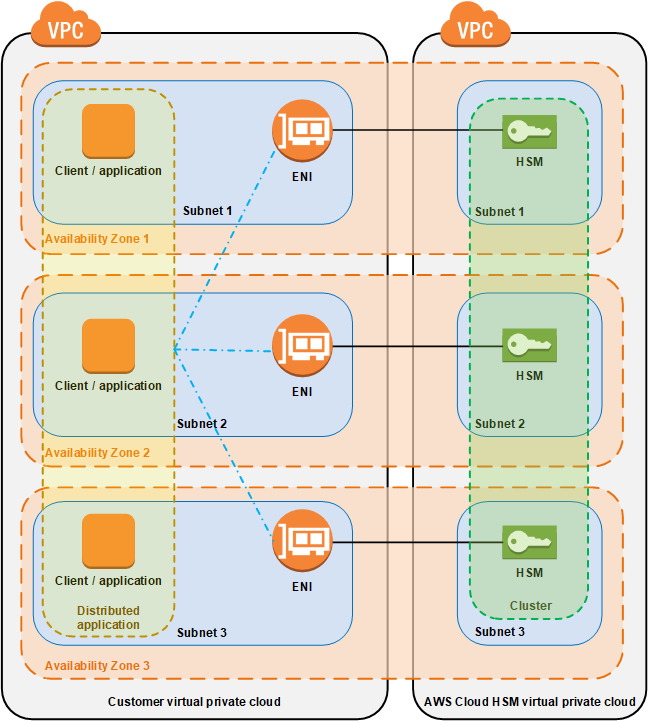AWS CloudHSM provides hardware security modules in the AWS Cloud. A hardware security module (HSM) is a computing device that processes cryptographic operations and provides secure storage for cryptographic keys.
When you use an HSM from AWS CloudHSM, you can perform a variety of cryptographic tasks:
- Generate, store, import, export, and manage cryptographic keys, including symmetric keys and asymmetric key pairs.
- Use symmetric and asymmetric algorithms to encrypt and decrypt data.
- Use cryptographic hash functions to compute message digests and hash-based message authentication codes (HMACs).
- Cryptographically sign data (including code signing) and verify signatures.
- Generate cryptographically secure random data.
AWS CloudHSM provides hardware security modules (HSMs) in a cluster. A cluster is a collection of individual HSMs that AWS CloudHSM keeps in sync. You can think of a cluster as one logical HSM. When you perform a task or operation on one HSM in a cluster, the other HSMs in that cluster are automatically kept up to date.
You can create a cluster that has from 1 to 28 HSMs (the default limit is 6 HSMs per AWS account per AWS Region). You can place the HSMs in different Availability Zones in an AWS Region. Adding more HSMs to a cluster provides higher performance. Spreading clusters across Availability Zones provides redundancy and high availability.
- Dedicated hardware security modules (HSM)
- Supports FIPS140-2 Level 3. It's the only service in AWS that support this level.
- Runs within a VPC in your account. Project ENI in your VPC to be accesible.
- Single tenant, dedicated hardware, multi AZ cluster.
- Industry standard API, no AWS API.
- CloudHSM are irretrievable if lost.
- Preferred answer for Regulatory compliance requirements.
